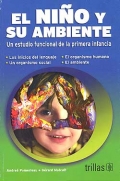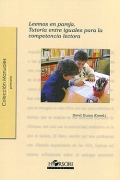Deterioro cognitivo en pacientes epilépticos. (Parte VII)
Pueden no ser dosis-dependientes. Se manifiestan como defectos de concentración (por
ejemplo, dificultad para leer con la radio prendida), de atención o de working-memory (por
ejemplo, dificultad para recordar el número de teléfono aprendido que se estaba por usar).
Estas alteraciones pueden deberse genuinamente al uso de DAE, sin estar mayormente
influidas por las otras variables que ya hemos comentado en este artículo.
Todos los estudios muestran mayores efectos adversos como consecuencia de la
politerapia, si se compara contra monoterapia.
La disminución de las dosis anticonvulsivantes administradas a niños mejora sus
rendimientos en el aprendizaje, en tanto que el aumento de dichas dosis lo entorpece.
Fenobarbital: Afecta adversamente la velocidad intelectual, el nivel de vigilancia, la
destreza motora fina, los procesos de atención-concentración y la memoria. Disminuye el
CI y puede ocasionar hiperactividad e irritabilidad en niños (Perrine y Kiolbasa, 1999).
Fenitoina, Carbamazepina y Acido valproico: Los efectos cognitivos son altamente
variables, no constatándose diferencias significativas entre las 3 drogas (Dodrill, 1992),
pese a que antiguamente se decia que la fenitoína, la carbamazepina y el ácido valproico
podrian tener efectos colaterales adversos sobre la cognición en ese orden decreciente.
Topiramato: Los efectos sobre la cognición de esta droga pueden revertirse con reducción
de la dosis, siendo agravados por la asociación con valproato. Los disturbios parecen estar
vinculados a la fluencia semántica, al aprendizaje verbal, a la memoria de trabajo y a los
procesamientos visuomotores (Baeta et al, 2000).
Lamotrigina: Leve déficit intelectual, sin efectos ostensibles en atención, concentración o
memoria (Marciani et al., 1998).
Vigabatrina y Gabapentina: A dosis terapéuticas, efectos nulos o despreciables sobre la
cognición (Monaco et al. 1997, Leach et al. 1997).
7. Conclusión
Los déficits cognitivos en la Epilepsia resultan de varios mecanismos fisiopatológicos: 1º)
ataques prolongados pueden causar daño metabólico neuronal, de hecho los estudios con
PET han venido a confirmar el hipometabolismo residual en extensas áreas de cerebros
epilépticos, 2º) las descargas eléctricas per se, aún subclínicas, pueden interferir con
procesos cognitivos, especialmente con los procesos de aprendizaje en los niños, 3º) las
lesiones cerebrales focales subyacentes dañan los mecanismos funcionales involucrados en
el área en cuestión, 4º) las drogas antiepilépticas pueden desarrollar efectos específicos
contra los sistemas cognitivos, y 5º) los traumatismos craneanos a repetición y/o los
tratamientos quirúrgicos realizados para aliviar los ataques pueden obrar como factores
concausales.
Referencias
Aarts, J.H.P; Binnie, C.D., Smit, A.H. y Wilkins, A.V. (1984). Selective cognitive impairment
during focal and generalized epileptiform EEG activity. Brain, 10, 293-308.
Alpherts, W.C.J. (1988). Computers as a technique for neuropsychological assessment in epilepsy.
En A. Aldekamp , W. Alpherts , H. Meinardi et al. (Eds.), Education and Epilepsy: Proceedings of
an International Workshop on Education and Epilepsy. Amsterdam: Swets & Zeilinger.
Baeta, E.M., Santana, I.M., Castro, G. et al. (2000). Topiramate therapy in patients with intractable
epilepsy: cognitive effects. Epilepsia, 41 (Suppl. 7), S234.
Bennett,T. L. (1992). Cognitive effects of epilepsy and anticonvulsant medications. En T. L.
Bennett (Ed.), The Neuropsychology of Epilepsy. New York: Plenum Press.
Cohen, M., Prather, A., Town, P y Hynd, G. (1990). Neurodevelopmental differences in emotional
prosody in normal children and children with left and right temporal lobe epilepsy. Brain and
language, 38, 122-134.
Delaney, R.C., Rosen, A. J., Mattson, R. H. y Novelly, R. A. (1980). Memory function in focal
epilepsy: a comparison of non-surgical unilateral temporal lobe and frontal lobe samples. Cortex,
16, 103-117.
Dikmen, S., Matthews, C.G. y Harley, J.P. (1977). Effect of early versus late onset of major motor
epilepsy on cognitive-intellectual performance: Further considerations. Epilepsia, 18,31-42.
Dodrill, C. B.(1978). A neuropsychological battery for epilepsy. Epilepsia, 19, 611-623.
Dodrill, C. B. (1992). Neuropsychological aspects of epilepsy. Psychiatric Clinics of North
America,15,2, 383-394.
Dodrill, C.B.y Matthews, C.G. (1992). The role of neuropsychologist in the assessment and
treatment of persons with epilepsy. American Psycologist, 47,9, 1139-1142.
Dodrill, C.B.y Wilkus, R. J.(1978). Neuropsychological correlates of the electroencephalogram in
epileptics: III. Generalized nonepileptiform abnormalities. Epilepsia, 19, 453-462.
Farwell, J.R., Dodrill, C.B. y Batzel, L.W. (1985). Neuropsychological abilities of children with
epilepsy. Epilepsia, 26, 395-400.
Fedio, P. y Mirsky, A.E.(1969). Selective intellectual deficits in children with temporal lobe or
centrencephalic epilepsy. Neuropsychologia, 7, 287-300.
Giordani, B., Berent, S., Sackellares, J.C. et al. (1985). Intelligence test performance of patients
with partial and generalized seizures. Epilepsia, 26, 37-42.
Hendriks, M.P.H., Jacobs, S., Aldenkamp, A.P., Alpherts, W.C.J., Vermeulen, J., Franken, R.
(1998). Memory complaints and the relation with memory functions in patients with partial seizures
originating from the temporal or frontal lobes. Epilepsia, 39 (Suppl. 2), S120.
Hermann, B.P. y Wyler, A.R. (1990). Language outcome following anterior temporal lobectomy
without use of functional mapping. Epilepsia, 36, 683- 689.
Hermann, B.P., Seidenberg, M., Schoenfeld, J. y Davies, K. (1997). Neuropsychological
characteristics of the syndrome of mesial temporal lobe epilepsy. Arch Neurol, 54, 369-376.
Hodgman, C.H., McAnarney, E.R., Myers, G. J. et al. (1979). Emotional complications of
adolescent grand mal epilepsy. J Pediatric, 95, 309.
Jokeit, H, Seitz, R., Markowitsch, H. J., Neumann, N., Witte, O.W. y Ebner, A. (1997). Prefrontal
asymmetric interictal glucose hypometabolism and cognitive impairment in patients with temporal
lobe epilepsy. Brain, 120, 2283-2294.
Jokeit, H. y Ebner, A. (1999). Long term effects of refractory temporal lobe epilepsy on cognitive
abilities: a cross sectional study. J. Neurol. Neurosurg. Psychiatry ,67, 44-50.
Kasteleijn-Nolst Trenite, D.G., Riemersma, J.B., Binnie, C.D., Smit, A.M.y Meinardi, H. (1987).
The influence of subclinical epileptiform EEG discharges on driving behaviour.
Electroencephalogr. Clin. Neurophysiol.,67, 167-170.
Kimura, D. (1963). Right temporal lobe damage: perception of unfamiliar stimuli after damage.
Arch. Neurol., 8, 264-271.
Klove, H. y Matthews, C.G. (1966). Psychometric and adaptive abilities in epilepsy with
differential etiology. Epilepsia, 7, 330-338.
Landau, W.M.y Kleffner, F.R. (1957). Syndrome of acquired aphasia with convulsive disorder in
children. Neurology, 7, 523-530.
Langfitt, J.T., Rausch, H.R., Babb, T.L.y Engel, J. (1990). Changes in confrontation naming
following temporal lobectomy. Epilepsia, 31, 679-685.
Lansdell, H.y Mirsky, A.F. (1964). Attention in focal and centrencephalic epilepsy. Exp. Neurol., 9,
463-469.
Leach, J.P., Girvan, J., Paul, A. y Brodie, M.J. (1997). Gabapentin and cognition: a double blind,
dose ranging, placebo controlled study in refractory epilepsy. J Neurol Neurosurg Psychiatry, 62,
372-376.
Loiseau, P., Signoret, J.L.y Strube, E. (1984). Attention problems in adult epileptic patients. Acta
Neurol Scand, 99, 31-34.
Malagold, S., Campanille, V., Lekhuniek, E. et al. (1997). Neuropsychological aspects in Juvenile
Myoclonic Epilepsy. Epilepsia, 38 (Suppl.3), S135.
Marciani, M.G., Stanzione, P., Mattia, D. et al. (1998). Lamotrigine add-on therapy in focal
epilepsy: electroencephalographic and neuropsychological evaluation. Clinical Neuropharmacoly
21, 41-47.
Matthews, C.G. y Klove, H. (1967). Differential psychological performances in major motor,
psychomotor and mixed seizure classification of known and unknown etiology. Epilepsia, 8,117-
128.
Mayeux, R., Brandt, J., Rosen, J. y Benson, D.F. (1980). Interictal memory and language
impairment in temporal lobe epilepsy. Neurology, 30, 120-125.
Mazzucchi, A., Visintini, D., Magnani, G., Cattelani, R. y Parma, M. (1985) Hemispheric
prevalence changes in partial epileptic patients on perceptual and attentional tasks. Epilepsia, 26,
379-390.
Milner, B. (1954). Intellectual function of the temporal lobe. Psychol Bull, 51, 42-62.
Monaco, F., Torta, R., Cicolin, A. et al. (1997). Lack of association between vigabatrin and
impaired cognition. J Int Med Res,25, 296-301.
O’Leary, D.S., Lovell, M.R., Sackellares, J.C., Berent, S., Giordani, B., Seidenberg, M., Boll, T. J.
(1983). Effect of age of onset of partial and generalized seizures on neuropsychological
performance in children. Journal of Nervous and Mental Disease,171, 624-629.
Perrine, K., Gershengorn, J. y Brown, E.R. (1991). Interictal neuropsychological function in
epilepsy. En O. Devinsky y W. Theodore (Eds.), Epilepsy and Behavior. New York: Wiley-Liss.
Perrine, K. y Kiolbasa, T. (1999). Cognitive deficits in epilepsy and contribution to
psychopathology. Neurology, 53, 39-48.
Piccirilli, M., D’Alessandro, P., Sciarma, T. et al. (1994). Attention problems in Epilepsy: possible
significance of the epileptogenic focus. Epilepsia, 35(5), 1091-1096.
Quadfasel, A.F. y Pruyser, P.W. (1955). Cognitive deficits in patients with psychomotor epilepsy.
Epilepsia, 4, 80-90.
Robinson, L.J. y Saykin, A.J. (1992). Psychological and psychosocial outcome of anterior temporal
lobectomy. En T. L Bennett (Ed.) The Neuropsychology of Epilepsy. New York: Plenum Press.
Sorokina, N.D., Karlov, V.A. y Selitsky, G.V. (1995) Cognitive functions of patients with epileptic
focus in parietal regions. Epilepsia, 36 (Suppl. 3), S125.
Swartz, B.E. y Mandelkern, M. A. (1999). Positron Emission Tomography: The contribution of
cognitive activation paradigms to the understanding of the epilepsies. En A. Delgado-Escueta, W.
Wilson, R. Olsen y R. Porter (Eds.), Jasper’s Basic Mechanisms of the Epilepsies (pp. 901-915).
Philadelphia: Lippincott Williams & Wilkins.
Tarter, R.E. (1972). Intellectual and adaptive functioning in epilepsy: A review of 50 years of
research. Diseases of the Nervous System, 33, 763-770.
Taylor, L.B. (1969). Localization of cerebral lesions by psychological testing. Clinical
Neurosurgery, 16, 269-287.
Thompson, P.J. y Trimble, M.R. (1982). Anticonvulsant drugs and cognitive functions. Epilepsia,
23, 531-539.
Tompkins, C.A. y Mateer, C.A. (1985). Right hemisphere appreciation of prosodic and linguistic
indications of implicit attitude. Brain and Language, 24, 185-203.
Ure, J.A. y Perassolo, M. (2000). Aspectos psiquiátricos y neuropsicológicos de las epilepsias.
Revista Neurológica Argentina, 25(4), 146-154.
Wilkus, R.J. y Dodrill, C. B. (1976). Neuropsychological correlates of the EEG in epileptics.
Topographic distribution and average rate of epileptiform activity. Epilepsia, 17, 89-100.
G R A T I S
-
Con cientos de fotos, curiosidades y explicaciones, "¿Quieres saber más?" es el libro ideal para la gente interesada en...9.95 €
-
Tres factores participan de manera esencial en la formación de los comportamientos del infante en crecimiento: el material genétic...17.28 €
-
En el volumen 3 de la colección La historia de la Tierra en cómic, se explica de modo ameno, comprensible y didáctico para los niñ...9.00 €
-
Leemos en pareja es un programa educativo basado en la tutoría entre iguales, con implicación familiar, para la mejora de la compe...18.50 €
ARTÍCULOS RELACIONADOS
- Alteración del aprendizaje escolar de Patagonia lingüística. (Parte V)
- Alteración del aprendizaje escolar de Patagonia lingüística. (Parte IV)
- Alteración del aprendizaje escolar de Patagonia lingüística. (Parte III)
- Influencias de las familias sobre el desarrollo de los escolares (Parte III)
- Bruxismo y terapia de modificación de conducta. Guía de práctica clínica para uso del obturador nasal transicional. (Parte II)
- Prevención del Uso Indebido de Drogas en el ámbito escolar. (Parte IV)
- Prevención del Uso Indebido de Drogas en el ámbito escolar. (Parte III)
- Prevención del Uso Indebido de Drogas en el ámbito escolar. (Parte II)
- Prevención del Uso Indebido de Drogas en el ámbito escolar. (Parte I)











